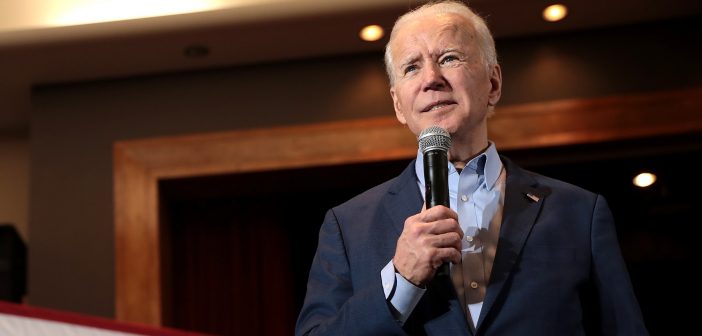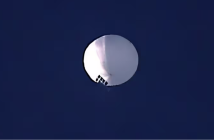Two years.
That’s how long senior US defense and military leaders think America has to field new capabilities to continue deterring an emboldened China that’s quickly undermining US warfighting advantages.
The nature of the challenge means President-elect Joe Biden’s defense team must move fast to map the transformation of American capabilities and garner political support for what may be painful, but long-overdue changes.
Because deterrence only works if your adversary believes you have the resources, capabilities and will to fight and win.
On this 79th anniversary of Imperial Japan’s attack on Pearl Harbor, it’s worth remembering that Tokyo made a historic miscalculation. Frustrated by America’s demands and seeing the United States as weak, its leaders in early 1941 decided to attack, despite warnings from senior military commanders that doing so would be a disaster.
If an ever-stronger China willing to violate international laws and norms concludes America is fiscally unable to compete, hasn’t invested in the right capabilities and it’s people have no will, US deterrence will fail.
On all three, sadly, China sees a declining power saddled with debt and suffering greater costs thanks to a mismanaged pandemic response that’s killed more than 280,000.
It sees a US military falling behind and an American people unwilling to follow basic guidance to save lives and minimize economic damage. If Americans won’t unite to beat a deadly pandemic, how likely are they to come together to fight a powerful external enemy?
If Beijing concludes it has the capabilities, superior resources and national will America can’t counter, it may conclude US capabilities no longer constitute a credible threat, setting the stage for disastrous miscalculation.
Biden’s desire to beat coronavirus at home and abroad as well as create a long-term China strategy in concert with other democracies will play key roles in bolstering the nation’s deterrent edge.
But fielding demonstrable capabilities at scale will be critical to gaining Beijing’s attention.
The Obama administration nearly a decade ago saw the need to shift from legacy platforms to new capabilities including artificial intelligence, machine learning, autonomy, quantum technologies, ever-longer range precision strike systems and modernizing the nuclear triad.
The Trump administration advanced those priorities and launched new efforts in hypersonics, long-range strike, sensors, reconnaissance and command systems, and accelerated the use of existing platforms — like self-propelled howitzers — in new ways, like cruise missile defense.
But for all it’s talk of transformation, buying new fighters, bombers, ships and vehicles dominated Obama’s defense agenda. Trump too, despite “night court” efforts, preferred spending on short-lived readiness improvements while resisting cutting programs that would hurt his supporters.
As China fielded ever more capable systems that posed ever harder problems, change at DoD was always coming next year.
Time’s up. The United States can’t afford four more years of incremental change and fail to make hard choices regarding how big a force is needed and what investments are needed to deter China, Russia or any other adversary.
As America clings to its platform-centric approach to warfare, China is developing layers of novel capabilities to systemically impose difficult and expensive-to-solve problems on US forces.
Just as America imposed crushing costs on the Soviet Union, now China is the one imposing costs on the United States.
To be clear, defense military leaders increasingly acknowledge the untenable nature of their position, driving change efforts. But they have not been able to make that change happen fast enough.
America now spends $750 billion annually on defense even as those doing the spending acknowledge they’re not adequately countering the integrated precision long-range strike, cyber, space and array of other game-changing systems China is operationalizing.
And that means America’s ability to deter China is increasingly at risk.
Whoever becomes secretary must launch a comprehensive assessment of what a modern great power war would look like, how it would be fought, what would be needed to fight it, and, crucially, how to sell its new plans to voters, Congress and industry.
The answers are not likely to be surprising. What’s needed has been clear for more than a decade — a shift from fielding better versions of existing systems and an assumption that adversaries will fight as US forces want them to, rather than how they’re likely to wage war. When pressed, defense and military leaders resort to rhetorical gymnastics to justify existing plans and systems, while explaining away glaring weaknesses.
Biden and his team will have to spearhead the biggest transformation in generations by finding and empowering change-minded military leaders to change their platforms, organizations, and operational concepts. They must focus on solving the hardest problems America’s adversaries are posing. In answering those problems, they will face resistance from traditionalists within their ranks as well as companies that make outmoded systems, and the members of Congress who represent those that produce or use them.
The new secretary will not only have to engineer a generational change, but also sell it to a hyper-partisan Congress and an industry used to business as usual.
To succeed, Biden himself must be engaged in this effort directly by making it clear that long-overdue change is one of his top priorities. And he must install and support a leadership team at the Pentagon must have the skill to quickly shape the right strategy and political acumen to execute it.
The defense reform has to be part of a wider reconsideration of American power that better harnesses the nation’s diplomatic, economic, information, military, scientific, academic and intellectual power in a more concerted manner for better long-term outcomes.
If Biden’s team gets it right, the United States will be able to continue to deter China. If they fail, Beijing will become increasingly confident that it has the upper hand.
To paraphrase the immortal words of the Italian writer Giuseppe Tomasi di Lampedusa, if things are to stay as they are, if America is to retain its ability to deter China, then things are going to have to change, and change fast.




